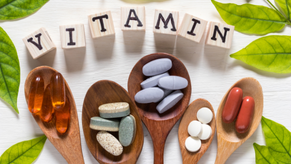Cancer begins with a mutation or activation in a gene that controls cell growth and proliferation. Normally, most of these abnormal cells are eliminated by normal cells (immune system cells in the intestine and circulation), preventing cancer development. This positive balance is proportional to the level of exposure to carcinogens.
Gastrointestinal (GI) cancers remain one of the most significant global health problems, despite advancements in treatment. Colorectal cancer ranks third among cancers worldwide for both men and women. GI cancers are thought to develop due to the complex interplay between genetics, the immune system, environment (including geographical region and socioeconomic status), nutrition, and lifestyle. Mutagens that cause errors (mutations) in cell genes and carcinogens that lead to cancer can be ingested through food or produced by harmful bacteria in the intestinal system. Many physiological or pathological factors (such as poor diet, aging, and stress) can disrupt the intestinal microflora. This disruption increases the number and ratio of harmful bacteria and the release of toxic substances in the intestine. A deficiency in beneficial bacteria, which serves as a balancing factor, can lead to increased exposure to toxic substances produced by harmful bacteria and those ingested from outside. This, in turn, can cause morphological changes in the intestine and throughout the body, which may result in cancer. The intestinal flora is thought to play a crucial role in defending against cancer by regulating immune and epithelial functions. Probiotics' ability to alter and maintain a balanced intestinal microflora is a significant step in cancer prevention.
Normal intestinal microflora generally consists of over 2,000 types of microorganisms residing in the GI system. Since probiotics' most significant mechanism of action is in the intestines, studies have generally focused more on colorectal cancer than on other types of cancer. Efforts to prevent cancer, which increasingly confront us each year, especially colorectal cancer, have heightened interest in probiotics.
What Are Probiotics?
The term "probiotic" means "for life" or "vital." In 1965, Lilly and Stillwell first described probiotics as "microorganisms that promote the growth of other microorganisms." In 1989, Fuller defined probiotics as "live microbial additives that promote the development of the host's intestinal microflora." Huisin't Veld and Havenaar stated that probiotic products must contain live microorganisms and improve the host's health by exerting beneficial effects in the GI tract, upper respiratory tract, or urogenital tract. These researchers defined probiotics as live, single, or mixed cultures of microorganisms.
In the GI system, probiotic bacteria:
- Compete for adhesion sites on the intestinal epithelial surface to prevent colonization by enteropathogenic microorganisms.
- Lower intestinal pH by producing organic acids such as lactic acid and acetic acid, hindering the survival of harmful bacteria.
- Control the proliferation of pathogenic bacteria with antimicrobial substances like hydrogen peroxide (H2O2), carbon dioxide (CO2), diacetyl, acetaldehyde, reuterin, bacteriocins, and bacteriocin-like substances.
- Maintain the balance of microflora.
These non-pathogenic and health-promoting live microorganisms offer numerous benefits, including supporting the immune system, inhibiting pathogenic bacteria and viruses, facilitating the digestion and absorption of food, vitamins, and minerals, producing vitamin K, folic acid, and short-chain fatty acids, preventing diarrhea, reducing lactose intolerance, preventing urinary tract infections, avoiding allergies, producing digestive enzymes like B-galactosidase, delaying aging, lowering serum cholesterol levels, and preventing tumor formation.
What Are Prebiotics?
Prebiotics are nutrients that pass directly to the colon without being digested in the small intestine. They promote the growth and activity of probiotics in the intestinal system, thereby enhancing the beneficial effects of probiotics. Examples of prebiotic products include lactosucrose, inulin, fructooligosaccharides, galactooligosaccharides, soy oligosaccharides, and isomaltooligosaccharides.
Products formed by the combined use of probiotics and prebiotics are called synbiotics. With synbiotic application, the lifespan of probiotic bacteria is extended, and they colonize the colon more effectively. In vitro studies show that synbiotic application is more advantageous than prebiotics or probiotics alone. Synbiotics have been shown to significantly reduce cancer cell development, increase interferon production, and improve epithelial barrier function and IFN production in peripheral blood mononuclear cells in patients who have undergone surgery. Similar studies on the immune system found that synbiotics have a stimulatory effect on the systemic immune system in colon cancer and surgery patients. These findings suggest that direct binding of probiotic bacteria to colon cancer cells and the production of short-chain fatty acids, such as butyrate, which stimulate apoptosis, are critical mechanisms in reducing cancer cell death.
Studies on the stool flora of people considered at high risk for colon cancer (due to polyps) and healthy individuals found that high-risk groups had 15 different strains (Bacteroides, Eubacterium, and Bifidobacterium) associated with a high risk of colon cancer, while the normal population had five different bacterial strains (e.g., Lactobacilli) associated with a low risk. Lactic acid bacteria, which are probiotics, increase the synthesis of short-chain fatty acids, including lactic acid, propionic acid, and butyric acid, which are shown to have anticarcinogenic effects, particularly related to colorectal cancer. Short-chain fatty acids help protect colonic mucosa from pathological changes and maintain mucosal immune balance, thereby suppressing the proliferation of carcinogenic metabolites and pathogenic bacteria.
Apart from colorectal cancer, probiotics have been studied in breast cancer, the most common cancer in women, showing that fermented dairy products like yogurt and kefir can reduce breast cancer risk.
Overall, Probiotics Can:
- Remove externally ingested carcinogens.
- Maintain intestinal microflora balance to reduce harmful bacteria that can produce carcinogenic substances.
- Produce substances like butyrate that activate programmed cell death, facilitating the elimination of abnormal cells.
- Stimulate the immune system to accelerate the elimination of abnormal cells.
These mechanisms are important in preventing cancer development.
Probiotics in Chemotherapy and Radiotherapy:
Chemotherapy (CT) and radiotherapy (RT) are fundamental cancer treatments. However, the side effects they cause, such as hematological toxicity, GI toxicity, organ toxicity, hair loss, fatigue related to CT, and other symptoms, can be life-threatening. RT may also lead to changes in intestinal flora, diarrhea, nausea, loss of appetite, and mucosal damage. CT and RT can weaken the immune system, making patients susceptible to infections. Addressing these treatment-related side effects is essential for improving cancer patients' quality of life. RT reduces bowel movements, leading to the slow transfer of stool and increasing Gram-negative bacteria, seen in over 45% of post-radiation diarrhea cases. Changes in intestinal flora may occur after CT and the use of broad-spectrum antibiotics. Studies have shown that the use of probiotics before or alongside CT or RT significantly reduces treatment-related diarrhea and allows patients to complete their treatment without interruption. Probiotics, being affordable and easy to use, are recommended to prevent cancer treatment-related diarrhea, although caution is needed in neutropenic patients.
Probiotic use in colorectal cancer patients can help maintain intestinal mucosal integrity and support the immune system, reducing post-surgical complications.
Unfortunately, the additives, chemicals, and antibiotics added to foods and beverages to extend shelf life, along with unnecessary antibiotics throughout life, especially between 0-2 years of age, can unintentionally kill these beneficial bacteria, disrupting this chain of healthy living. It is now undisputed that impaired or undeveloped intestinal flora and immune systems play a role in the emergence of autoimmune diseases and cancer, which are increasing in prevalence.







